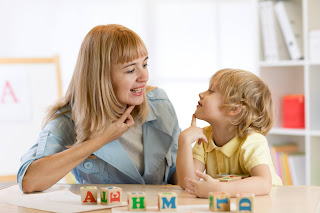Tips for Improving your Children's Physical Therapy
What is Physical Therapy?
Physical therapy is a treatment for muscles, joints, and limbs. An Arizona physical therapy specialist, who may practice working with children, will use mild exercises, directions, and other physical methods to help your kid gain, maintain or improve their physical abilities. Depending on children's health, physical therapy in Phoenix, AZ, may last anywhere from several weeks to over a year.
Goals of Physical Therapy
The goal of physical therapy in Phoenix can vary, depending on what it’s being used to treat. Some common goals include:
Decreasing pain
Enhancing mobility
Preventing injuries
Avoiding surgeries
Preventing future injuries
Improving current injuries
Managing chronic illnesses
Why Might Children Need Physical Therapy?
The process of physical therapy in Phoenix, AZ, includes helping your child move or otherwise use their body more healthily. Exactly how physical therapy can help your kid depends on their particular situation.
Your child may also need the best physical therapy in Phoenix to treat:
Injuries
Rehabilitation from surgery
Developmental delays
Genetic disorders
Head injuries
Muscle diseases
Congenital disabilities
Any one of these conditions can influence your child’s capability to walk, talk, and develop. But many of them can be limited or enhanced with the help of ABA therapy for kids in Arizona. Physical therapists use a variety of ways and activities to help your child remain as independent as possible.
You may only know Arizona physical therapy specialists to cure injured muscles or other mobility-limiting injuries. While physical therapists certainly help those with injuries get back to their former selves, they also enhance the lives of those with lifelong illnesses affecting muscle strength and mobility. Children with such conditions can significantly benefit from physical therapy in Phoenix, AZ, to maximize strength and movement early in life. At the same time, they are young or slow the progression of degenerative disease.
Physical Therapy (PT) has many advantages for children and adults of all ages and conditions. Motivating your kid to actively engage in physical therapy in Phoenix in a home setting can be challenging.
STRATEGY
Kids love to play games and have fun and physical therapy in Phoenix, AZ, by itself, can seem like a lot of work.
Develop games that include movements that mimic the requirements of your child’s therapy. If your kid is playing a game, they are more motivated to participate in “PT-like” exercises and activities.
Include siblings and friends in physical therapy sessions.
Create a list of six fun games. Hang it on the wall and give them each a number. Have the child roll the dice. The number rolled decides the game. Roll dice again to determine the frequency.
Reward your child’s reasonable effort by enabling them to play their favorite game – the reward doesn’t have to be PT-related.
Physical therapy can sometimes be boring or uncomfortable, so motivating your child to stick to their PT plan may be challenging. There are tips you can use to help and encourage your child and make PT more fun.
Lead by Example
Regular exercise is essential for all people, young and old. However, the PT directed by your child’s pediatric orthopedics team is to treat or improve a specific condition. You can help your child by being a positive role model by regularly exercising yourself.
Maintaining your exercise schedule and being upbeat will help your kid model that behavior when doing their own physical therapy.
Make It a Routine
When you set a definite schedule and hold on to it, your child will ultimately settle into the rhythm of physical therapy settings and will be less likely to protest or complain when it’s time to go.
Physical Therapy Should Be Fun and Exciting
Most children like being active and having new experiences. While your team may prescribe PT to treat a severe condition, the work itself can be a fun and assertive experience.
Alongside this, also learn to let your kid know when they are doing fine. Encourage them during physical therapy sessions, and appreciate them at the end for a job well done. Please remind your child that they have your full support.




Comments
Post a Comment